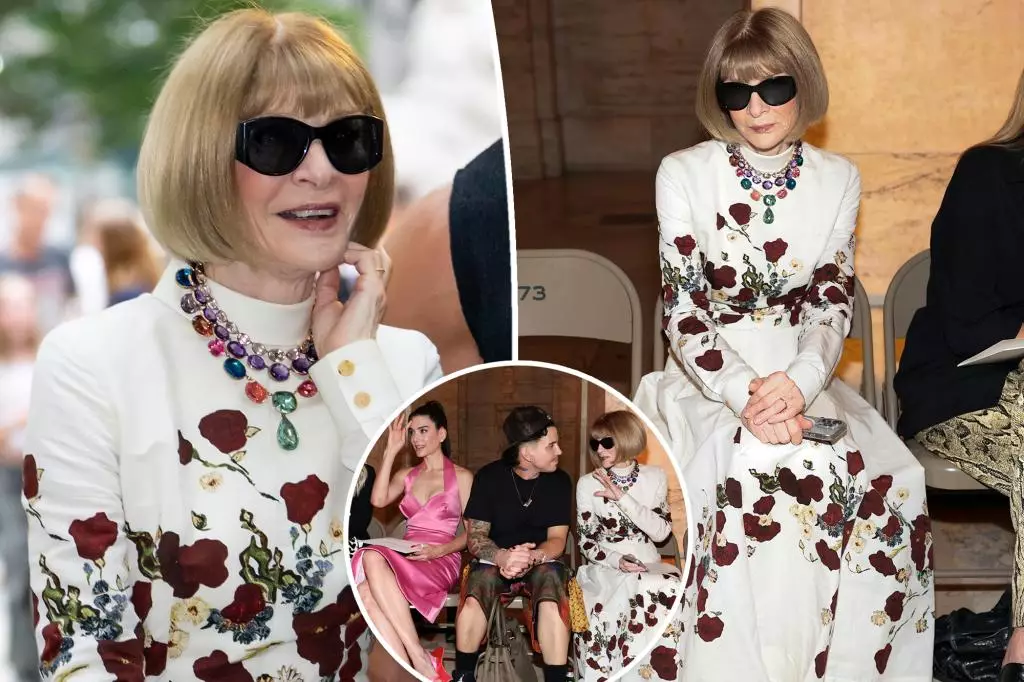Anna Wintour’s departure from her long-held position as Vogue’s editor-in-chief marks a defining crossroads in the fashion world. After nearly four decades at the helm of an industry icon, her stepping down signifies more than just a change in title; it signals a shift in the cultural landscape that she helped shape. Yet, her influence remains palpable, and her transition appears poised to redefine her role rather than diminish her presence.
What stands out most is Wintour’s unwavering style and unwavering commitment to her craft. Her recent appearance at Marc Jacobs’ fall 2025 show—draped in a vibrant floral ensemble, accessorized with her signature elegant touches—serves as a reminder that she remains a formidable force. Her choice to attend in such a visually striking look, full of personality and confidence, underscores her undeniable influence on style and her steadfast identity as a fashion icon.
Continuity Amid Change
Although Wintour is stepping back from her daily editorial responsibilities, her role within Condé Nast and Vogue persists, signifying a strategic transition rather than a retreat. Her decision to remain as chief content officer and global editorial director demonstrates her desire to retain influence while empowering new leadership to bring fresh perspectives to the magazine. Wintour’s focus on major aesthetic and cultural events, like the Met Gala, and her plans to continue shaping Vogue’s innovative initiatives attest to her enduring vision for the publication and the industry as a whole.
This layered approach—combining legacy with evolution—exemplifies her understanding that change is necessary for growth. Rather than fading into the background, Wintour is consciously positioning herself as a guiding force, nurturing new talent and safeguarding Vogue’s cultural prominence. Her influence, cultivated over decades, will undeniably leave a lasting imprint on how fashion and culture intersect in the future.
Implications for Fashion’s Future
Wintour’s trust in figures like Marc Jacobs, appointing him as a guest editor for Vogue, reveals her strategic vision: fostering collaborations that inject new energy into the industry. Jacobs’ role as a creative outsider with deep roots in fashion aligns with Wintour’s desire to keep Vogue both relevant and fearless in an increasingly complex media landscape. Her emphasis on forward-thinking projects underscores her commitment to innovation—traits she has exemplified throughout her career.
Ultimately, her departure from the editor-in-chief chair is not an end, but a bold recalibration. Wintour’s career proves that true influence endures beyond titles; it rests in the ability to adapt, inspire, and shape cultural narratives. As she continues to impact fashion from her new vantage point, industry insiders and fans alike can anticipate a future filled with adventurous ideas and unrelenting passion—hallmarks of a legacy that has already transformed fashion history.

